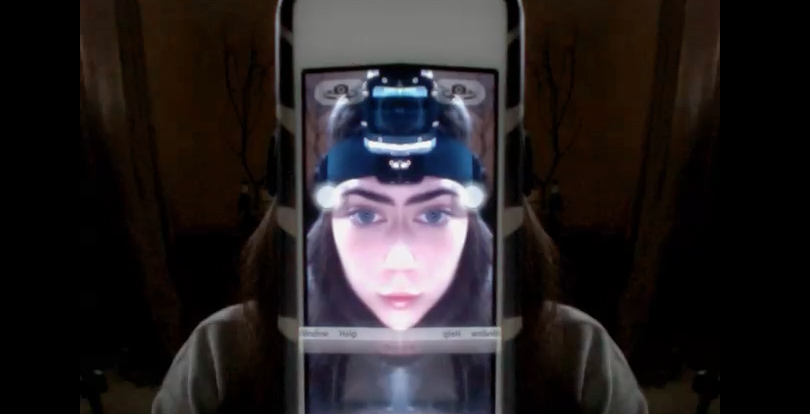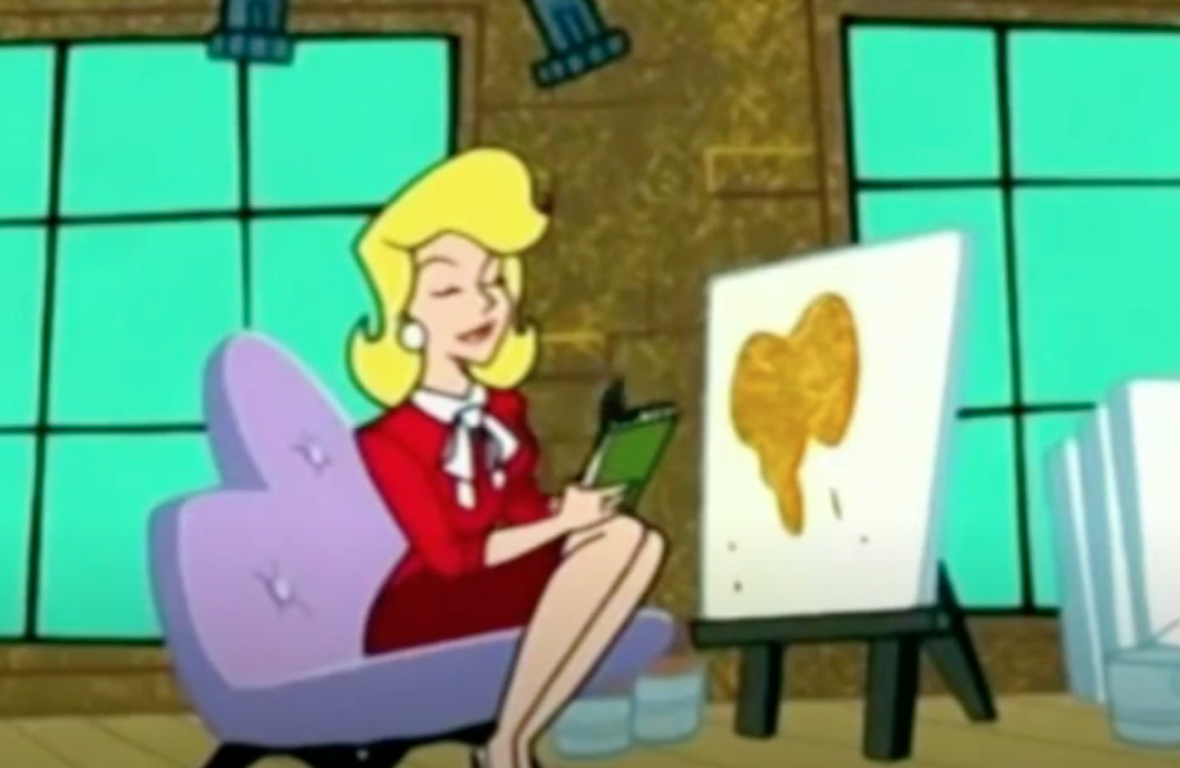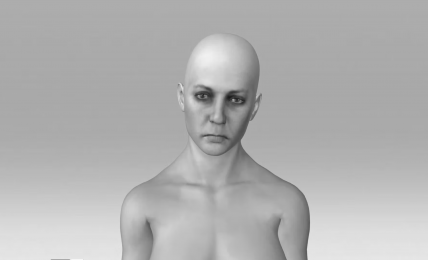Comics have a supremely low barrier to entry, at least in terms of production. Just draw two squares and then draw more stuff inside the squares and suddenly you’ve made a comic. Then, if you have a photocopier handy you can get your work sold at a fine establishment. Put that stuff on Tumblr and, if you’re good enough, you’ll be able to develop an audience you never knew you could even have. Believe me, I’ve seen it happen.
That’s because the digital realm has revolutionized not only the way comics are seen, but who reads them as well as who makes them. These days, the term “comics creator” encompasses an increasingly wider group rather than the usual set of nerds, sex perverts, and jazz enthusiasts–and it shows in the output. There’s a lot of garbage, sure, but the digital form has also given us one of the greatest comics of the twenty-first century. The medium is flooded with amazing comics from different perspectives that you haven’t even heard of, and some you have. There are longform serialized stories in every genre, and there’s a gag strip for nearly every discipline, job, medium, or fandom you can imagine. You don’t even have to be particularly original to gain a following.
You wouldn’t notice just looking at the print stuff, where dude-centric superhero adventure comics rule the market and literally everything else is relegated to the catch-all term “indie comics.” Even that is changing, but print’s a dying form, so everyone says despite the fact that many in the comics world desperately cling to it. Ever since America Online became a household name, I’ve heard people–fan, retailer, and creator alike–say that comics (namely the variety that exists in trashy 22-page, monthly doses) would never make the transition.
Those people were (thankfully) wrong. Digital editions of comic books are increasingly “A Thing,” to the point where Marvel and DC not only have their own “digital first” releases, but also include digital download codes with many of their print comics. The digital comics downloading/reading app ComiXology is wildly successful–so successful, in fact, that Amazon bought them a few weeks ago. And outside of corporate juggernauts, Viz Media and Dark Horse Comics offer their own digital options while Image Comics [site no longer active] straight-up sells DRM-free .cbr files of their latest releases–a format best known for its use by the weekly comics pirates (it’s just that good).
So, yeah–digital is resoundingly the wave of the future for nearly every artistic medium, while in the comics world it’s shockingly divisive. Physical comics retailers call for severed heads at the slightest mention of digital comics and there are many stunted fans (superhero-oriented, obviously) who balk at the idea of downloading their comics and how hard it is to read in an electronic format (they’re obviously not tablet owners). It’s unfortunately shortsighted, as the digital physical divide is well into becoming what MP3s were to CDs, as someone can fork over a non-commital 99 cents for something brand new and colorful or an old Ghost Rider comic she was mildly curious about. I know because I’ve done it, and I’m a guy who grew up with, owns, and still buys a TON of hard copy comics.
However, I’m not married to the form. Rather than hang our hopes on a publisher picking us up, artist Eric Zawadzki and I serialized the entirety of our four-issue miniseries The Ghost Engine in webcomic form a few years ago. And in March of 2014, my friend/collaborator Morgan Davis and I launched a website called Loser City–part comics-publishing label, part pop culture criticism website and part promotional banner for concerts in Austin, Texas’ music scene. Francesca interviewed us about it a few months before our big debut, and now that it’s out she’s asked me to write some more on the topic of starting up a comics label with a digital bent.
Most people are waiting for an opportunity to embark on a big creative endeavor, as if someone is going to “discover” them and greenlight their Oscar-caliber screenplay sight unseen. I blame stuff like American Idol, which has created a culture where we’re led to believe that to accomplish anything “artistic” we need the approval of a force bigger than ourselves. A publisher, a movie studio, a reality show competition. Tribunals are for war crimes, not judging talent. We don’t need corporations or TV shows to pursue our passions, and doing so is way easier than we think. For the most part, we just need a modicum of talent and the drive to accomplish our goals–tempered, of course, by realism and an understanding of our limitations.
Over the past couple of years I’ve started to really get to know comic book creators at or around the same level as me. It’s good to connect with others because of the shared experience and, in a few years, there’s always a chance that you can actively help each other out. With that said–especially amongst comic book writers–there’s a lot of talk about pitching, which is the primary method of getting published in mainstream comics. So comic convention conversations are filled with chatter about who’s pitching what, how many projects they’ve got under review, which editors they know or plan to schmooze. That’s not really my thing. The idea of asking permission to make comics is, frankly, insane.
In my early years of being serious about making comics, I’d only get motivated when I noticed an anthology with open submissions or (ew) a contest. The anthologies opened up a few opportunities and gained me collaborators and friends, so I’m not too down on that stuff, and moreover it got the ball rolling for me and I’ve grown to be more self-sufficient in the comics game. That’s why I became a freelance writer in my early twenties when the results of a desperate cattle call from the voter registrar in August 2008 gave me the sneaking suspicion that I was basically unhirable. If you won’t hire me, then fuck it, I’ll hire me.
That has extended to comic books. If I want to make a comic, I’m going to make sure it happens instead of languishing in limbo. So I decided that I wanted to create my own label to publish comics–not just my own, but also the work of talented friends and collaborators, because what really inspires me in publishing are people who just go out on their own. Like, for all its problems and controversies and infamous financial incompetence, Tundra Publishing is the most amazing thing I’ve ever heard of. The co-creator of the Teenage Mutant Ninja Turtles, given a preposterous amount of money and the kind hubris that only comes with being in your mid-twenties, decided to sink all his funds into a vanity publisher that put out some incredible stuff before over-ambition and bad management made the whole thing implode. And this is a guy who could have just bought a fucking yacht.
But you don’t need a once-in-a-millennium licensing deal to create your own platform. I know a few actively-working creators who have spearheaded their own means to bring comics into the world. The biggest recent example is Chris Roberson, a well-established, actively working writer/publisher who cold-dropped the mic on DC Comics after some ugly creators’ rights issues and almost immediately debuted MonkeyBrain Comics, which publishes a large volume of quality digital comics with low overhead. Then there are outfits like Zack Soto’s Study Group and Ryan Ferrier’s Challenger Comics, both of which specialize in mostly online comics (and a handful of physical objects) and were started by creators who aren’t (yet) household names. And hey, neither am I.
All three were certainly an influence on me as I became emboldened enough to embark on the journey of self-publishing. The great thing about digital comics–especially for someone with limited space and money–is that you never run out of stock and there aren’t 500 copies to store in your tiny apartment. Loser City’s going to dip its toes into physical waters very soon with hard copy editions of select releases, but zeroes and ones will pretty much always be the major delivery system of Loser City’s stuff, because you can reach more people on the internet than you can in the physical world.
There’s no pressure to move product or any fear of getting cancelled. It’s all mine to do with as I please. Even though nobody’s ever heard of me, through Loser City I can make sure they do.
:::
Danny Djeljosevic is a comic book writer and founder of the comics publishing label/pop culture site Loser City. He also wrote the four-issue miniseries The Ghost Engine, which you can read online FOR FREE. He lives in San Diego.




